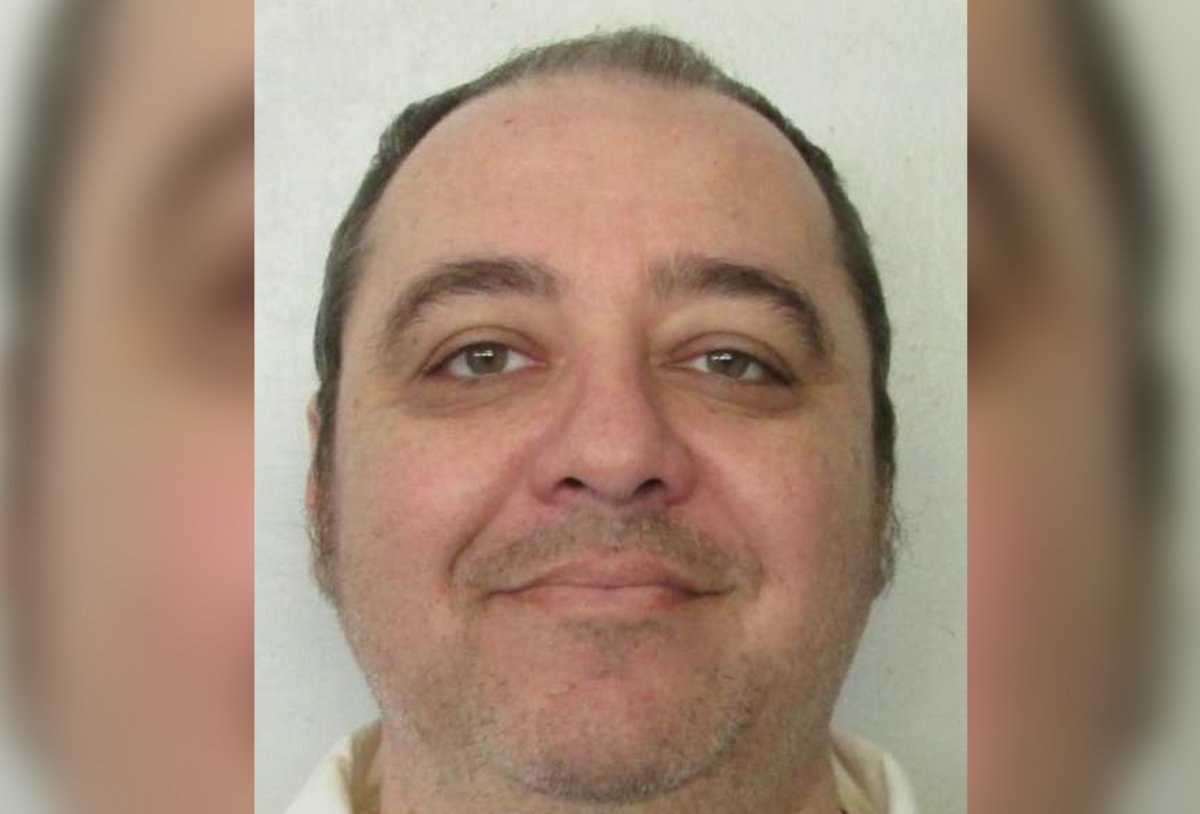Alabama has set a January execution date for Kenneth Smith, in what would be the nation's first attempt to put an inmate to death using nitrogen gas.
Nitrogen hypoxia is authorized as an execution method in Alabama, Oklahoma and Mississippi, but none has previously used it to carry out a death sentence.
Alabama Governor Kay Ivey on Wednesday announced a January 25, 2024, execution date for Smith using the new method.
"The execution will be carried out by nitrogen hypoxia, the method previously requested by the inmate as an alternative to lethal injection," Ivey spokesperson Gina Maiola wrote in an emailed statement to The Associated Press. Ivey's office has been contacted for comment via email.
Who is Kenneth Smith?
Smith, 58, was one of two men convicted in the 1988 murder-for-hire killing of Elizabeth Sennett.
Prosecutors said the men were each paid $1,000 to kill Sennett by her husband Reverend Charles Sennett, who was in deep debt and wanted to collect on insurance. Charles Sennett killed himself a week after his wife's death, when the murder investigation started to focus on him as a suspect. John Forrest Parker, the other man convicted in the killing, was executed in 2010.
Smith's attorneys filed a lawsuit in federal court on Wednesday, arguing that Alabama had selected their client as the "test subject for this novel and experimental method."

The lawsuit notes that the state had tried but failed to execute Smith by lethal injection in November last year. It was called off when the execution team could not find a suitable vein in which to inject the drugs before a midnight deadline. Alabama this year changed death penalty procedures to give prison officials more time to carry out executions following a string of botched and flawed lethal injections.
"We are disappointed that Governor Ivey apparently has set an execution date and we will continue to pursue the enforcement of Mr. Smith's rights through the judicial process," Smith's attorney Robert Grass said in a statement to Newsweek.
"Like the eleven jurors who did not believe Mr. Smith should be executed, we remain hopeful that those who review this case will see that a second attempt to execute Mr. Smith—this time with an experimental, never-before-used method and with a protocol that has never been fully disclosed to him or his counsel – is unwarranted and unjust." Jurors at Smith's trial voted 11-1 to recommend a sentence of life imprisonment, but it was overridden by the trial judge, who imposed the death penalty.
Nitrogen makes up 78 percent of the air that people breathe and is harmless when inhaled with proper oxygen levels. But under the proposed nitrogen hypoxia protocol, a mask would be placed over an inmate's nose and mouth, forcing them to breathe only nitrogen and depriving them of the oxygen needed to stay alive.
The nitrogen gas "will be administered for 15 minutes or five minutes following a flatline indication on the EKG, whichever is longer," the execution protocol says.
Proponents argue the execution method would be painless, but opponents have decried it as human experimentation and said the state has not disclosed enough information about how it would work.
"Alabama has already subjected Kenneth Smith to hours of pain as they tried and failed to execute him by lethal injection," Reprieve US Director Maya Foa said in a statement to Newsweek.
"Instead of acknowledging the harm done and granting him a reprieve, the state has chosen to treat him as a lab specimen for a new, untested, dangerous method of execution. Officials do not and cannot know it is safe. This is human experimentation and torture, not justice."
The Alabama Supreme Court approved Alabama Attorney General Steve Marshall's request for a death warrant in a 6-2 decision last week.
Marshall said the court's decision had "cleared the way" for Smith's execution by nitrogen hypoxia.
Sennett's family has "waited an unconscionable 35 years to see justice served," he said. "Though the wait has been far too long, I am grateful that our talented capital litigators have nearly gotten this case to the finish line."
Uncommon Knowledge
Newsweek is committed to challenging conventional wisdom and finding connections in the search for common ground.
Newsweek is committed to challenging conventional wisdom and finding connections in the search for common ground.
About the writer
Khaleda Rahman is Newsweek's Senior News Reporter based in London, UK. Her focus is reporting on abortion rights, race, education, ... Read more
To read how Newsweek uses AI as a newsroom tool, Click here.






